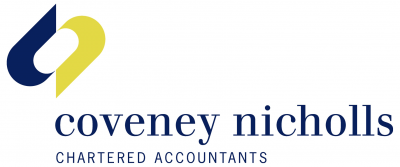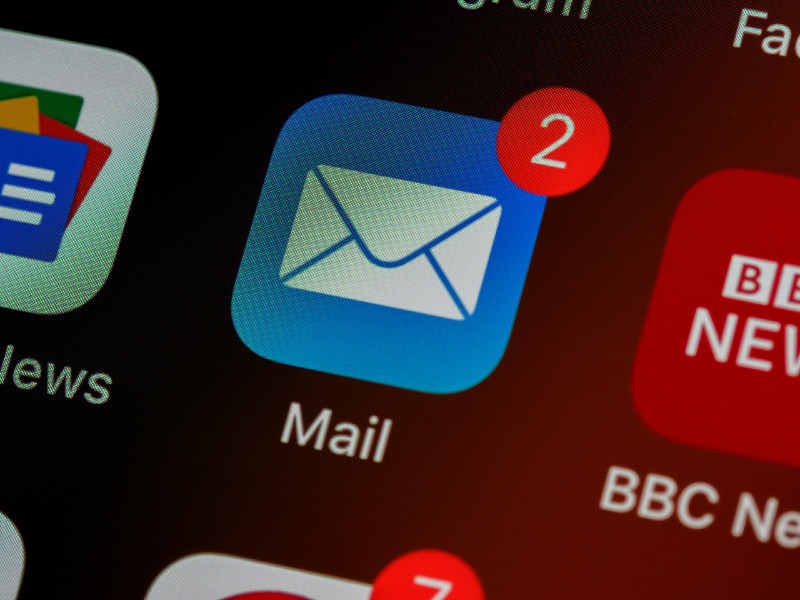At Coveney Nicholls, we often hear about HMRC scams where individuals are tricked into parting with sensitive information.
This can happen in several ways but usually involves someone contacting you out of the blue purporting to be from HMRC.
They might say that you’re due a refund or that you owe money and need to pay it immediately to avoid penalties. They might also say they need to confirm your identity by asking for sensitive information such as your bank account details or password.
By being aware of these scams and knowing what to look for, you can protect yourself and your business from becoming victims.
This blog tells you what you need to know about the HMRC scams, how to identify them, and what to do if you think you’ve been a victim.
What is an HMRC scam?
HMRC scams are when people pose as HMRC to try and steal money or personal information. HMRC will never contact you out of the blue to ask for personal or financial information or threaten you with arrest. If you’re approached by someone claiming to be from HMRC, stop and think before doing anything.
What are the most common HMRC scams in recent years in the UK?
In recent years, there have been many scams involving HMRC.
These scams typically involve fraudsters contacting taxpayers and claiming to be from HMRC.
The most common HMRC scams include:
- Fraudsters pretending to be from HMRC and calling taxpayers to demand payment of an imaginary tax bill;
- Fraudsters sending fake emails or text messages purporting to be from HMRC in an attempt to obtain personal and financial information;
- Fraudsters set up fake websites that mimic the HMRC website to collect personal and financial information;
- Fraudsters are sending fake letters purporting to be from HMRC, again in an attempt to collect personal and financial information.
How to identify an HMRC scam email or communication, and what to look for?
Email is one of the most popular ways scammers use it to communicate with businesses to gain information.
A prevalent email scam has the title ‘Your tax refund is ready’, stating that the recipient is due a refund and asking them to click on a link to claim their money.
HMRC will never send emails of this nature.
Here are a few vital other things to look out for:
- Check the email address carefully – HMRC will only ever send emails from addresses ending in ‘@hmrc.gov.uk’. If your email has come from any other address, it’s almost certainly a scam.
- Watch out for spelling and grammar mistakes -HMRC communications are always well written and free from errors. If you spot any mistakes in an email or letter purporting to be from HMRC, it’s likely to be a fake.
- Be wary of unexpected refunds – HMRC will only issue refunds if you’ve overpaid tax or are entitled to certain types of tax relief. If you receive an unsolicited refund without expecting it, it’s almost certainly a scam.
What to do if you think you’ve been scammed by fake HMRC communication?
If you think you have been the victim of a scam involving fake HMRC communication, there are a few things you can do.
First, report the incident to Action Fraud, the UK’s national fraud reporting centre. You can do this online at www.actionfraud.police.uk or by calling 0300 123 2040.
Action Fraud will investigate the matter further and advise on what to do next.
If you have been defrauded out of money, you should immediately contact your bank or credit card company to see if they can help you recover your losses.
In addition, you should also contact HMRC directly to let them know what has happened. You can call their fraud hotline on 0800 788 887 or email phishing@hmrc.gsi.gov.uk.
HMRC will provide further guidance on what steps to take next and may also be able to take action against the people responsible for the scam.
How to protect yourself from being scammed in the future from a fake HMRC scam
According to Action Fraud, over 1,100 reports of this type of scam have occurred in the past year, with victims losing an average of £1,200 each.
HMRC will never contact you out of the blue to ask for your personal or financial details, so if you receive any suspicious calls, emails or texts purporting to be from HMRC, do not respond.
Furthermore, you can protect yourself by ensuring that your computer has up-to-date security software and never clicking on links or attachments in unsolicited emails.
By following these simple steps, you can help to protect yourself from becoming a victim of this type of scam.
Conclusion
HMRC scams are becoming increasingly common, so it’s essential to recognise the signs to look out for.
The HMRC website includes a section dedicated to scams, with advice on avoiding them and what to do if you think you’ve been a victim.
The site emphasises that HMRC will never:
- Cold call you about a tax refund or penalty.
- Ask for payment of a tax bill by methods such as pre-loaded debit cards, cryptocurrency or iTunes vouchers.
- Promise to recover debts you didn’t know you had
- Threaten jail time unless you immediately make a payment
- Force you to use a specific payment method to pay a tax bill.
If you receive a call or email from someone claiming to be from HMRC, hanging up or deleting the email is the best course of action.
Coveney Nicholls Chartered Accountants, with offices in Surrey, Sussex & London
Coveney Nicholls accountants can help your business with your HMRC and accounting requirements. We have over 25 years of experience helping companies like yours, and our team of experts is always on hand to provide advice and support.
Contact us today to find out how we can help you.

